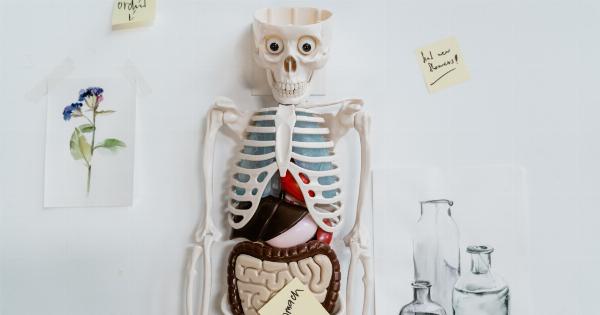Alzheimer’s disease is a neurological disorder that affects a person’s ability to remember things, think clearly, and carry out daily tasks.
It is a progressive disease that worsens over time, eventually leading to the loss of many cognitive functions, and in the end, the loss of life. Alzheimer’s is a common cause of dementia among the elderly and is a significant cause of death worldwide.
Alzheimer’s develops slowly, and it can be challenging to detect the early stages of the disease.
However, recent research has shown that certain body parts may indicate the risk of developing this condition, making it possible to identify those at risk early on and take the necessary steps to prevent or manage the disease.
The Brain
The brain is the central organ of the body that controls our thoughts, emotions, movements, and senses. It is also the organ that is primarily affected by Alzheimer’s disease.
In people with Alzheimer’s disease, the brain gradually deteriorates, leading to the death of brain cells and a noticeable shrinkage of the brain. Early indicators of Alzheimer’s disease can be detected using imaging tests such as MRI, PET, or CT scan. These tests identify structural changes in the brain that may indicate the presence of Alzheimer’s disease.
The Eyes
The eyes are not the first body part that comes to mind when one thinks of Alzheimer’s disease, but recent studies have shown that a person’s eyes could indicate cognitive impairment caused by Alzheimer’s.
Researchers found that there is a close correlation between the thinning of the retina and the degeneration of brain cells. This discovery could lead to developing a non-invasive screening method for detecting Alzheimer’s disease at an early stage.
The Heart
The heart is a vital organ responsible for pumping blood throughout the body. However, research has shown that there is a link between cardiovascular disease and increased risk of developing Alzheimer’s disease.
Studies have found that high blood pressure, obesity, and other cardiovascular risk factors can lead to damage to the brain’s blood vessels, which can, in turn, cause Alzheimer’s disease.
The Liver
The liver is the body’s largest digestive organ, responsible for filtering toxins from the bloodstream. However, recent studies have shown that the liver may also play a role in the development of Alzheimer’s disease.
Researchers found that a specific type of protein produced by the liver, called Fetuin-A, can cause inflammation in the brain, which can contribute to the onset of Alzheimer’s disease.
The Gut
The gut, also known as the gastrointestinal tract, plays a vital role in the body’s digestive process. However, recent studies have shown that there is a close relationship between gut health and brain health.
Researchers found that a healthy gut can help reduce inflammation in the brain, which can help prevent the development of Alzheimer’s disease. People with Alzheimer’s disease also tend to have a high level of certain gut bacteria, which can affect cognitive function.
The Blood
The blood is responsible for delivering nutrients and oxygen to the organs and tissues in the body. Recent studies have shown that there is a connection between the composition of the blood and Alzheimer’s disease.
Researchers found that a particular type of protein, called β-amyloid, can accumulate in the blood and lead to cognitive decline. Identifying the presence of this protein in the blood could help doctors diagnose the early stages of Alzheimer’s disease.
The Lungs
The lungs are organs responsible for breathing and exchanging gases between the body and the environment.
It is a well-known fact that smoking damages the lungs, but recent studies have suggested that smokers also have an increased risk of developing Alzheimer’s disease. Researchers found that smoking can cause inflammation, oxidative stress, and damage to the blood vessels, which can affect cognitive function and lead to the onset of Alzheimer’s disease.
The Skin
The skin is the largest organ in the body and plays a vital role in protecting the body from external factors. Recent studies have shown that there is a link between certain skin conditions and the risk of developing Alzheimer’s disease.
Researchers found that people with psoriasis, eczema, and other skin conditions have a higher risk of developing cognitive impairment and Alzheimer’s disease.
The Muscles
The muscles are responsible for movement and support of the body. Recent studies have shown that there is a connection between muscle strength and the risk of developing Alzheimer’s disease.
Researchers found that muscle strength is a predictor of cognitive function, and people with weaker muscles are more likely to develop Alzheimer’s disease in later life.
The Kidneys
The kidneys are essential organs responsible for filtering waste products from the blood. However, recent studies have shown that there may be a connection between kidney function and the development of Alzheimer’s disease.
Researchers found that people with poor kidney function are more likely to develop cognitive impairment and Alzheimer’s disease. Kidney disease has also been found to increase the level of β-amyloid in the blood, which is a significant factor in the development of Alzheimer’s disease.
Conclusion
Alzheimer’s disease is a significant health concern affecting people worldwide. Early diagnosis and treatment are crucial to managing the disease and improving the quality of life for people with Alzheimer’s disease.
Identifying the body parts that indicate the risk of developing Alzheimer’s disease is the first step in early diagnosis and treatment. Further research is needed to understand the connection between each of these body parts and the development of Alzheimer’s disease so that doctors can develop targeted and effective screening methods for people at risk of developing this condition.




























